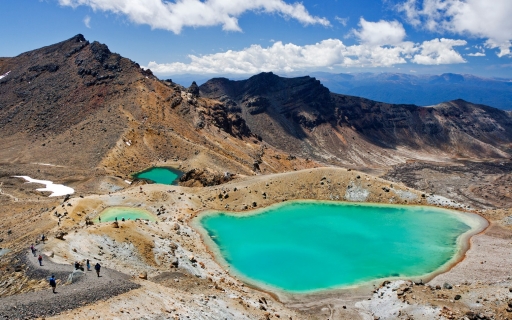Gisborne Climate by Month
The temperature in Gisborne varies moderately throughout the year.
The temperatures shift from warm
to mild.
It receives mid-range precipitation levels.
Now, let’s break down all the climate details for a clearer picture.
Average day and night temperature
The weather in Gisborne changes moderately throughout the year, offering enough variation to appreciate each season. Average daytime temperatures range from a comfortable 24°C in January, the warmest time of the year, to a moderate 14°C during cooler months like August. At night, temperatures typically average around 7°C during these months.
The mean minimum and maximum temperatures throughout the year
Precipitation and rainy days
Generally, Gisborne has a moderate amount of precipitation, averaging 963 mm of rainfall annually. Year-round, Gisborne has a balanced climate with minimal variation in precipitation. The difference between the wettest month, July, with 102 mm, and the driest month, November, with 65 mm, is minimal.The mean monthly precipitation over the year, including rain, hail and snow
Sunshine over the year
Seasonal changes in sunshine hours are quite dramatic in Gisborne. While January receives considerable daily sunshine with up to 8.3 hours, July marks the darkest time of the year, where sunshine is scarce with only 4.1 hours of sunlight per day.Monthly hours of sunshine
Daily hours of sunshine
Average water temperature
The mean water temperature over the year in Gisborne ranges from 13°C in July to 18°C in January.
Water temperature over the year
Average humidity
The relative humidity is moderate throughout the year in Gisborne.
Relative humidity over the year
Average wind speed
The mean wind speed over the year in Gisborne ranges from 3°C in January to 4°C in August.
The mean monthly wind speed over the year (meters per second)
The best time of year to visit Gisborne in New Zealand
During the months of January, February, March, November and December you are most likely to experience good weather with pleasant average temperatures that fall between 20°C and 26°C.Other facts from our historical weather data:
January has an average maximum temperature of 24°C and is the warmest month of the year.
The coldest month is August with an average maximum temperature of 14°C.
July tops the wettest month list with 102 mm of rainfall.
November is the driest month with 65 mm of precipitation.
January is the sunniest month with an average of 248 hours of sunshine.
No idea where to travel to this year? We have a tool that recommends destinations based on your ideal conditions. Find out where to go with our weather planner.




